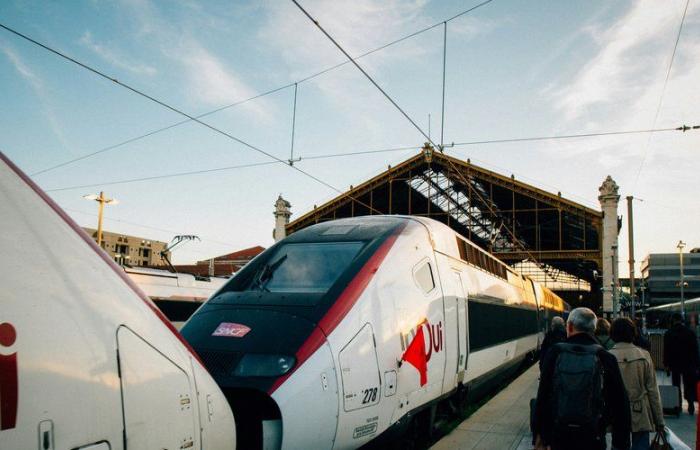
Several railway unions have called a strike on November 20, 2024. We provide you with an update on the state of traffic and the demands of workers at the SNCF.
The fear of a major renewable strike on the trains as the Christmas holidays approach is fading: Thursday's strike, presented as a “ultimatum” before that of December, will be little followed by the SNCF, which anticipates almost normal traffic for its TGVs.
“Ultimatum”
The call for a strike by the inter-union railway workers – which brings together all the SNCF unions – is poorly mobilizing. There will be one Intercités in two in circulation and seven TER in ten on average throughout France.
The CGT-Cheminots, Unsa-Ferroviaire, Sud-Rail and the CFDT-Cheminots called at the beginning of November for a major movement in response to the confirmation of the dismantling of Fret SNCF, the leading company in France for the transport of goods by rail.
The company must disappear on January 1 and be replaced by Hexafret for freight transport and Technis for locomotive maintenance. The process should result in the elimination of 500 jobs out of 5,000, even if the SNCF has promised to take back all the railway workers not retained in other companies in the group.
This dismantling, on which the unions are calling for a moratorium, results from an agreement signed between the government and the European Commission, after the opening of an investigation into illegal state aid paid to Fret SNCF.
“I am quite doubtful about this social movement, especially since there are no other possible hypotheses” than dismantling, recalled Minister Delegate for Transport François Durovray on Tuesday morning.
“Privatisation”
“We cannot let this pass without doing anything,” said Fabien Villedieu, federal secretary of Sud-Rail. The agreement signed with Europe also provides for an opening of the private capital of Rail Logistics Europe, which brings together all of SNCF's freight activities, at the start of 2026.
The unions denounce a privatization, which the management contests since the railway group will retain the majority of the capital.
In a press release, the CGT-Cheminots called on Tuesday for a debate to be held in Parliament concerning the future of Fret SNCF, as will be the case regarding the free trade treaty with Mercosur.
“It’s a process of privatization in the broad sense,” adds the general secretary of the CGT-Cheminots Thierry Nier. “The same process applied to Freight will apply to travelers tomorrow with the establishment of subsidiaries which reveals the same logic: lowering costs, social dumping and deterioration of working conditions”, he continues.
Organization of working time
On December 14, around 1,200 railway workers in Amiens, Nice and Nantes will be transferred from SNCF Voyageurs to dedicated companies having won calls for tenders launched by the regions for the TER market.
The transferred railway workers will retain certain benefits (retirement rights, travel facilities, etc.) but will also see the entire organization of their working time reorganized, in order to increase productivity.
“There is a very strong awareness [parmi les cheminots] that these structural changes are obviously not going in the right direction”assures the general secretary of the CFDT-Cheminots, Thomas Cavel.
The inter-union is calling for an end to the process of affiliation, or in any case for guarantees in the organization of the work of the transferred railway workers.
At present, nearly 60% of TER markets are under call for tenders, and a large majority of railway workers working on regional trains should be transferred to subsidiaries or to competitors who have won the markets – such as Transdev on the Marseille-Nice route — by the end of the decade.
On the side of the management of the SNCF, we assure that the work to carry out this process has been underway for many years and that the social negotiations are well advanced.
“The French would not understand a long and hard strike in December”underlined Sunday the CEO of SNCF Jean-Pierre Farandou in an interview with La Tribune Sunday.





